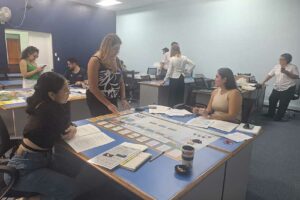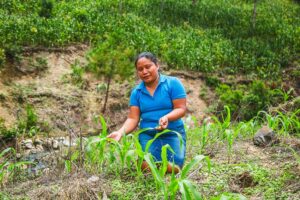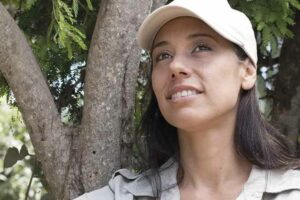Workshop at CATIE Reveals Challenges and Opportunities in Community Participation in Water Management
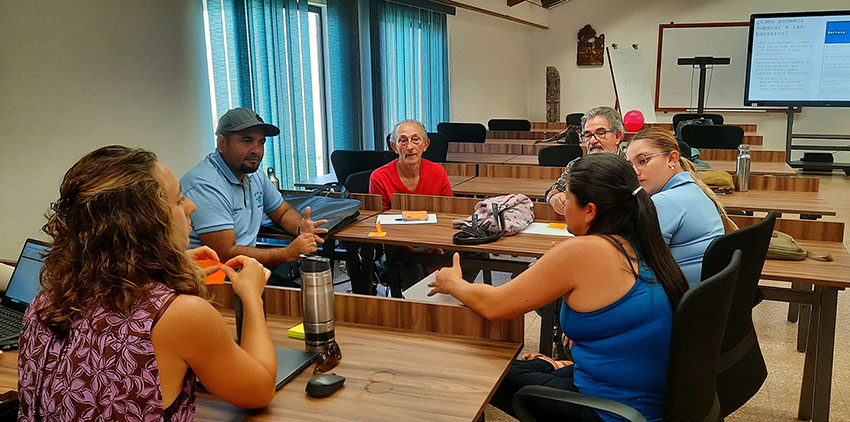
- Researchers from CATIE and the University of Seattle conducted a study to understand the involvement of rural communities in the management of water resources for human consumption.
To enhance community participation in local water management in the cantons of Turrialba and Jiménez, in the province of Cartago, Costa Rica, CATIE (Tropical Agricultural Research and Higher Education Center) became on August 24 a venue for sharing results and discussion, based on information gathered from a survey conducted in 2023 across 533 households in five rural communities in the canton.
The workshop brought together 27 representatives from the boards of directors of communal aqueducts in Pejibaye, Jiménez, as well as El Mora, Los Alpes, Tuis, Pavones, Carmen Lyra, Santa Rosa, Río Claro, Verbena Sur, Peralta, Santa Teresita, and San Ramón, in Turrialba. Representatives from the Union of ASADAS of Turrialba and Jiménez (UNATUJI) also attended.
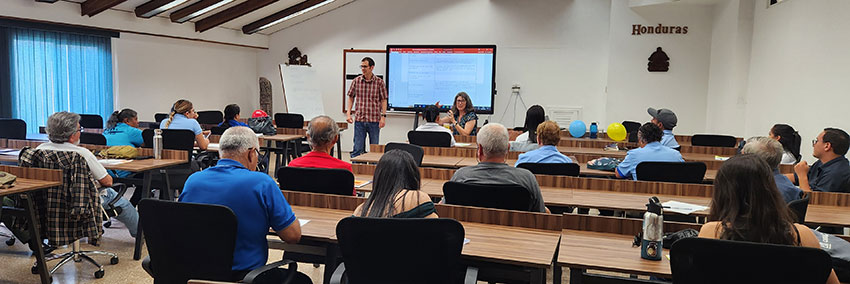
“Improving community participation is a key factor in enhancing water management and the long-term sustainability of these organizations,” said Róger Madrigal, coordinator of CATIE’s Environmental Economics and Sustainable Agribusiness Unit (UEAAS/EfD.
Given the importance of fostering greater community involvement, a consultation process was initiated in 2023, coordinated by Felipe Murtihno and Tanya Hayes from the University of Seattle, alongside Madrigal and Bárbara Viguera from UEAAS/EfD, which resulted in the organization of this participatory workshop.
Community Consultation
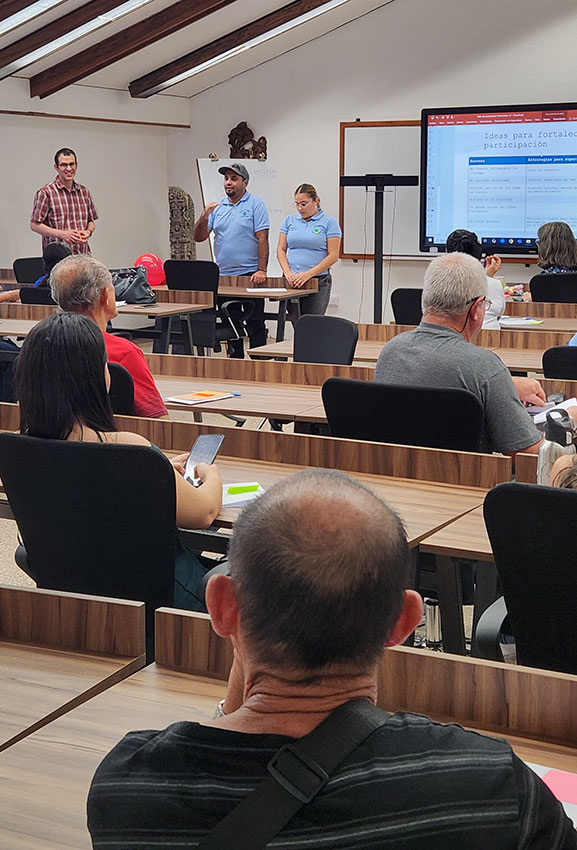
A necessary step in organizing the workshop held at CATIE was gaining a better understanding of the actual participation of communities in the actions promoted by communal aqueducts, as well as their perception of the work these entities do.
In this context, with the support of CATIE students, a consultation process was carried out last year, involving 533 surveys.
Viguera shared that during the investigation process, people had a receptive and willing attitude to participate because, as she pointed out, “they see it as an opportunity to be heard.”
Reasons Hindering Participation
Although the survey results showed 86% satisfaction with the water service provided by the communal aqueduct or ASADA, and 58% expressed concern about the impact of climate change on the potable water service in communities, participation in meetings or assemblies reached only 34% of the associated people, most of whom were men aged between 47 and 68.
Some of the reasons cited in the surveys for non-participation relate to the fact that 25% of households do not attend because they are not yet members or property owners, a requirement imposed by the Costa Rican Institute of Aqueducts and Sewers (AyA), the national authority in water management.
Additionally, lack of time, misinformation, disinterest, distance, meeting times, or the feeling of not being considered were mentioned as additional factors for not attending.
Viguera mentioned that the Regulation of Associations Managing Communal Aqueduct and Sewer Systems, decreed in 2005, is currently under review to facilitate greater participation of women and young people.
“The regulation establishes that only the owner of a water connection can participate with a voice and vote in an assembly. Therefore, if the family father's name appears on the property right, only he can attend meetings, excluding the mother, children, or other family members residing in the household,” explained the researcher.
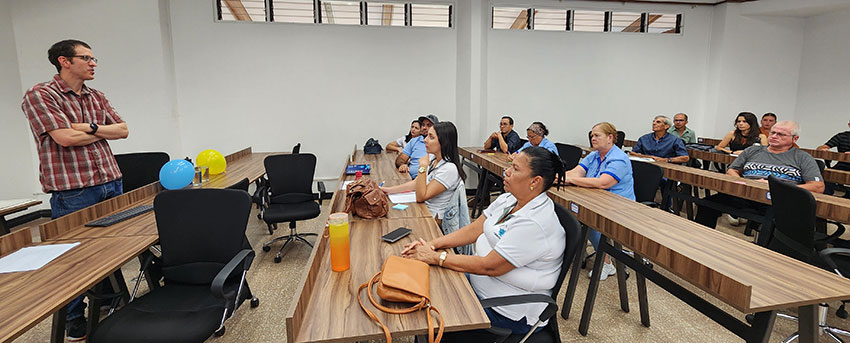
At the end of the workshop, and after the survey results were known, researchers from the University of Seattle and CATIE, together with the group of participants, discussed possible alternatives to strengthen community participation. Among these were the promotion of experience exchanges between communal aqueducts, improving the form and frequency of communication, and finding mechanisms to facilitate the participation of more women and young people.
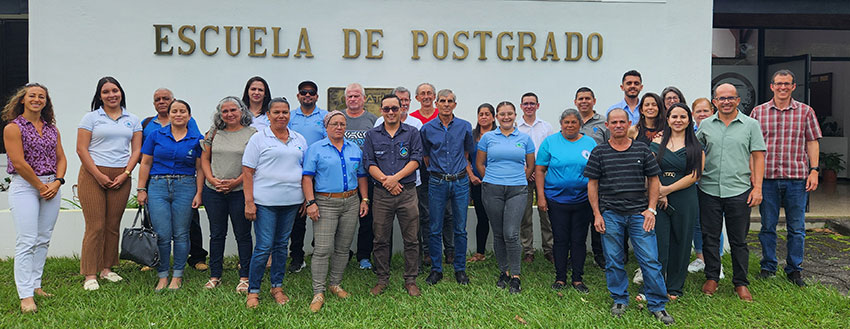
More information:
Róger Madrigal B.
Coordinator
Environmental Economics and Sustainable Agribusiness Unit (UEAAS/EfD)
CATIE
rmadriga@catie.ac.cr
Written by:
Marianela Argüello L.
Communication and Knowledge Management Officer
Environmental Economics and Sustainable Agribusiness Unit (UEAAS/EfD)
CATIE
marguello@catie.ac.cr

